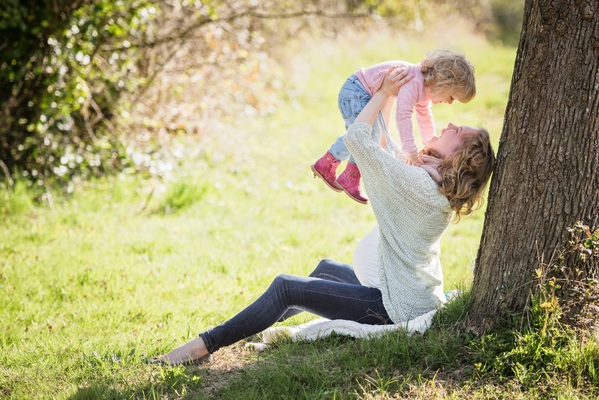By Maxine Therese
Even with the best intentions, we may find ourselves parenting in ways that are not as conscious or mindful as we would like. Parenting requires a lot of energy and focus, and trying to meet the day-to-day demands of your children, as well your own needs, can become overwhelming. Being overwhelmed makes it impossible for us to be open and present to our children’s needs. Instead we may find we are distracted and closed – in a survival mode of sorts. This way of relating creates more distance and tension in our relationship with our children.
Thankfully, at any moment we can adopt more mindful ways of being with children which will not only support them, but also relax our nervous system’s responses to stress. If we can enter a state of wonder with our children, a state I call ‘Being in the Question’, we can pause and focus on what is happening in the present moment rather than being occupied with the to-do list or in a rush to get to the next thing. This also allows you to let go of the pressure that you might sometimes put on yourself by thinking you have to do something for your child or fix something about them.
‘Being in the Question’ allows you to relax in the right space to begin to sense and feel what is surfacing in you, when something is occurring with your child. This practice allows you to pause and to openly welcome and accept all of your own sensations, feelings and thoughts as they arise in you, before you react. You might be more mindful of your feelings and thoughts in meditation in the times you are not with your children – so you have some practice. Then if you can remain in the question with your children’s behaviours, when your child demands attention or is acting out (which are not always easy to tolerate) you can be open to feeling what messages and signals are contained within your child’s behaviours.
When you have the space to see beyond the behaviour to the important need it is expressing, you might notice for example:
• A child’s anxiety is communicating that they are feeling unsure and insecure and have a need to be safe and secure
• A child’s rebellion is communicating that they are feeling restricted in some situations and have a need to act
• A child’s anger is communicating that they are feeling unloved or heartbroken and have a need to love
From a space of wonder then, when your child does something you might normally react to or reprimand, you can pause and have the space to ask ‘I wonder what my child must be feeling to respond to life that way?’
When you explore what your child might be experiencing, you will begin to align and attune more with your child and have the space to ask them what they are feeling and thinking. This way you are not focusing on prohibiting behaviours or wanting to fix something. Rather, you are attempting to understand what your child’s behaviours mean for your child. You are working with the child by accepting all their behaviours and finding better ways to support their feelings and thoughts. This approach empowers children to value their important body expressions and behaviours as vital messages, which allows them to explore their own needs and develop self-competency and emotional awareness.
You can find out more about ‘Being in the Question’ – being mindful in your parenting – and the Foundational Needs Model of Dr Maxine Therese at www.childosophy.com








